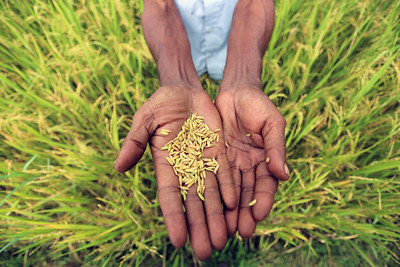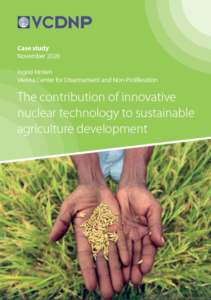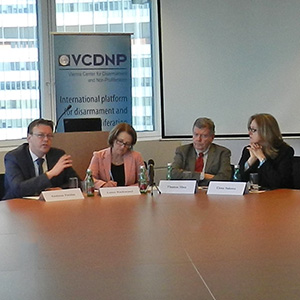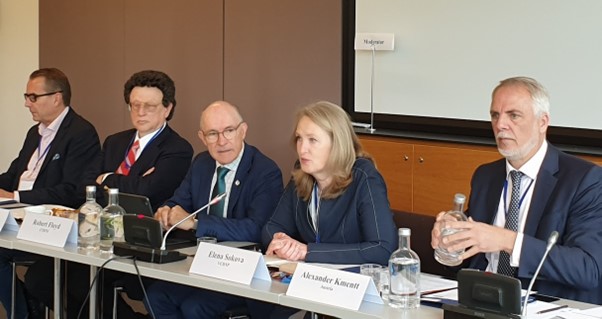
 Nuclear technologies do not only contribute to the production of low-carbon electricity - their many applications are also used for sustainable development, including in the field of agriculture.
Nuclear technologies do not only contribute to the production of low-carbon electricity - their many applications are also used for sustainable development, including in the field of agriculture.
Using a nuclear technique known as plant mutation breeding, scientists can produce seeds that are more resistant to drought, disease and adverse weather conditions, have shorter crop cycles, higher yields and other beneficial traits. Over 3000 mutant varieties have been released worldwide and their value is measured in billions of dollars of additional revenue, in millions of cultivated hectares and, most importantly, in innumerable people leading better and healthier lives.
A new case study authored by VCDNP Senior Research Associate Ingrid Kirsten highlights the positive impact of plant mutation breeding on the livelihoods of farmers, as well as its contribution to mitigating food insecurity. The case study focuses on Bangladesh, one of the most densely populated countries on the planet and considered particularly vulnerable to the impacts of climate change. This country has managed to triple its rice production in recent years with the help of plant mutation breeding. The study analyses the secret to Bangladesh’s success.
Interviews with experts reveal the important role of the International Atomic Energy Agency (IAEA) in facilitating access to these technologies and assisting countries in their safe, secure and sustainable application. The nuclear technologies used to irradiate seeds and plant material, as well as related security considerations are also discussed.
The case study concludes with recommendations for the IAEA and its Member States to ensure the continued access to and use of nuclear technologies for plant mutation breeding.
Feature image credit: Nicole Jawerth/IAEA


By continuing to use the site, you agree to the use of cookies. more information
The cookie settings on this website are set to "allow cookies" to give you the best browsing experience possible. If you continue to use this website without changing your cookie settings or you click "Accept" below then you are consenting to this.